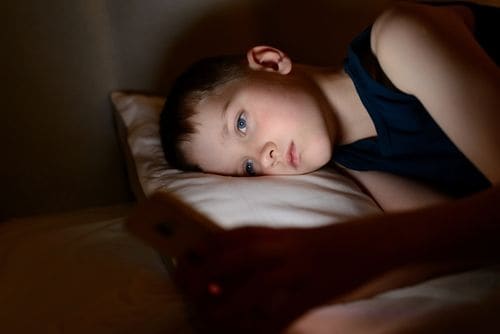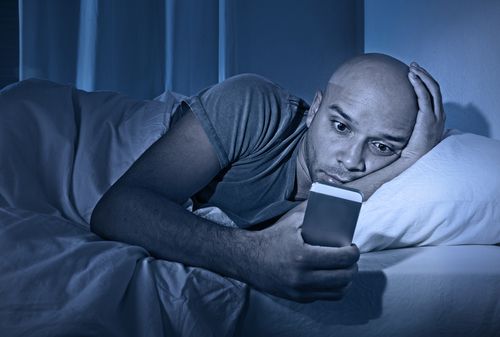5 Common Causes of Sleep Deprivation & Insomnia
Posted on October 12, 2017 By Alison P
Sleep is a fundamental human function that serves many purposes. Not receiving the appropriate amount of sleep, whether voluntarily or otherwise, can result in a range of negative symptoms, including everything from moodiness and clumsiness to poor impulse control and reduced productivity. Oftentimes, recurring sleep deprivation will become categorized as insomnia, which refers to the habitual inability to fall asleep. And while these conditions can take a heavy toll on daily life, they can be remedied by pinpointing and addressing the cause(s) of your sleep deprivation. Below, we'll outline a few of the most notable causes of sleep deprivation and insomnia in both adults and children.
1. Stress
If you're constantly bogged down by stress, whether it's caused by a job or life event, the odds of you falling asleep drop considerably. This stress will cause your mind to actively search for a solution to these issues well into the night. Consider tackling whatever you're stressed about each evening by jotting down your worries in a journal and quickly writing down your next steps for overcoming the problem at hand. Stress can also affect children, particularly when it comes to school and high-pressure extracurricular activities, but teaching them this technique can make a big difference in how much rest they get.
2. Your schedule
Do you travel frequently? Are you working a shift-based job prone to erratic scheduling? Any situation that prevents you from maintaining a regular schedule is likely contributing to your sleep deprivation. An irregular lifestyle can upset your metabolism, body temperature and much more, thus wreaking havoc on your sleep cycle. Aim for consistency wherever you can to ensure you get as much rest as possible.
3. Caffeine
This one might seem like a no-brainer, but the reality is that caffeine stays in your body much longer than many of us realize. As a matter of fact, caffeine has a six-hour half-life, according to Livestrong. This means that if you downed an energy drink with 160 mg of caffeine at 1 p.m., half of that caffeine still remains in your system at 7 p.m. Restricting your caffeine consumption to the early morning is your best bet for a good night's rest if you can't eliminate it altogether. If it's your child that's dealing with sleep deprivation, be sure to reduce or eliminate his or her intake of caffeinated soft drinks and similar beverages.
 4. Pre-sleep activities
4. Pre-sleep activities
It's dangerously easy for both you and your child to develop habits of watching television or playing video games before bed. These activities, as well as computer and smartphone use, can affect your sleep cycle in a number of ways. For one, the blue light projected by many of these screens can trick the brain into believing it's still daytime. Additionally, media that contains exciting elements, even a book, can excite your mind rather than relaxing it.
5. Your sleep environment
Your environment affects your ability to sleep in numerous ways. Temperature is a common factor, so always make certain the air isn't too hot or cold to avoid restlessness. Using soft, lightweight blankets can also ensure you stay comfortably toasty without heating things up too much. Sound may also keep you up, but wearing sleep earplugs to bed can help mitigate this issue. Likewise, even dim lights can keep you awake - a problem easily solved with a sleep mask. Finally, make sure your mattress is up to par. A mattress that's too soft or firm might make it difficult to find a comfortable position, and if your mattress is older, it may be riddled with aggravating allergens.
Make a Change
It can seem tough to get the sleep you need, but with the right lifestyle adjustments and items for your bed, you can find the perfect balance. Get started by selecting a mattress and mattress protectors suited to your unique needs, and you'll be snoozing before you know it.